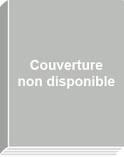« Boyer 1990 » : différence entre les versions
m (→1. Références) |
|||
| Ligne 47 : | Ligne 47 : | ||
== 3. Mots-clés == | == 3. Mots-clés == | ||
<!-- Mettre ici la liste de sujets sur lesquels porte le livre, entre doubles crochets, afin de pouvoir retrouver les publications par sujet.--> | <!-- Mettre ici la liste de sujets sur lesquels porte le livre, entre doubles crochets, afin de pouvoir retrouver les publications par sujet.--> | ||
* [[ | * [[Scholarship of Teaching and Learning]] | ||
* [[enseignant]] | * [[enseignant]] | ||
* [[professionnalisation]] | * [[professionnalisation]] | ||
| Ligne 53 : | Ligne 53 : | ||
<br> | <br> | ||
== 4. Quart de couverture == | == 4. Quart de couverture == | ||
<!-- Copier / coller ici le quart de couverture à partir d'internet --> | <!-- Copier / coller ici le quart de couverture à partir d'internet --> | ||
Dernière version du 15 mars 2017 à 16:52
Scholarship Reconsidered
1. Références
- Référence complète APA : Boyer, E. (1990). Scholarship Reconsidered : priorities of the professorate. Carnegie Foundation for the Advancement of Teaching.
- Auteur(s) : Ernest Boyer
2. Copies
- Copie électronique en ligne : https://www.csusm.edu/community/facultyengagement/scholarshipreconsidered.pdf
- Copie électronique locale : Fichier:Boyer 1990.pdf
- Copie physique CP :
- Copie physique en bibliothèque :
3. Mots-clés
4. Quart de couverture
5. Table des matières (facultatif)
6. Résumé personnel (facultatif)
"Boyer's model of scholarship is In the 1990 publication "Scholarship Reconsidered", Ernest Boyer introduced an academic model advocating expansion of the traditional definition of scholarship and research into four types of scholarship.[1][2] According to Boyer, traditional research, or the scholarship of discovery, had been the center of academic life and crucial to an institution's advancement but it needed to be broadened and made more flexible to include not only the new social and environmental challenges beyond the campus but also the reality of contemporary life. His vision was to change the research mission of universities by introducing the idea that scholarship needed to be redefined.
He proposed that scholarship include these four different categories:
- The scholarship of discovery that includes original research that advances knowledge;
- The scholarship of integration that involves synthesis of information across disciplines, across topics within a discipline, or across time;
- The scholarship of application (also later called the scholarship of engagement) that goes beyond the service duties of a faculty member to those within or outside the University and involves the rigor and application of disciplinary expertise with results that can be shared with and/or evaluated by peers; and
- The scholarship of teaching and learning that the systematic study of teaching and learning processes. It differs from scholarly teaching in that it requires a format that will allow public sharing and the opportunity for application and evaluation by others.
Boyer's model has been embraced across the academy with occasional refinement, such as specific applications for different disciplines." (Wikipédia, https://en.wikipedia.org/wiki/Boyer%27s_model_of_scholarship)
7. Voir aussi
